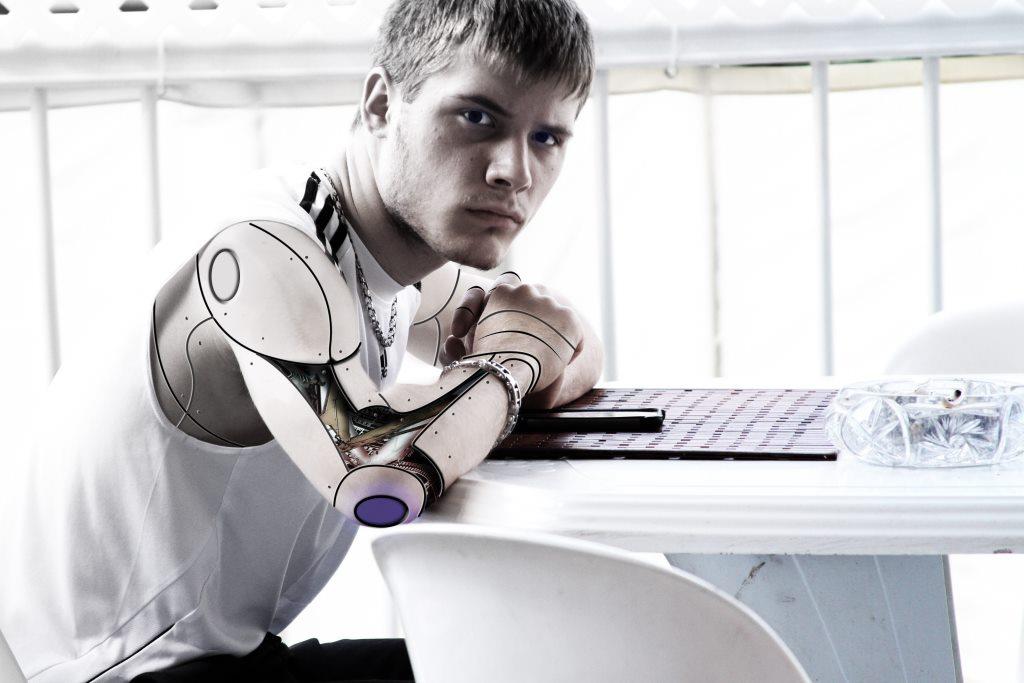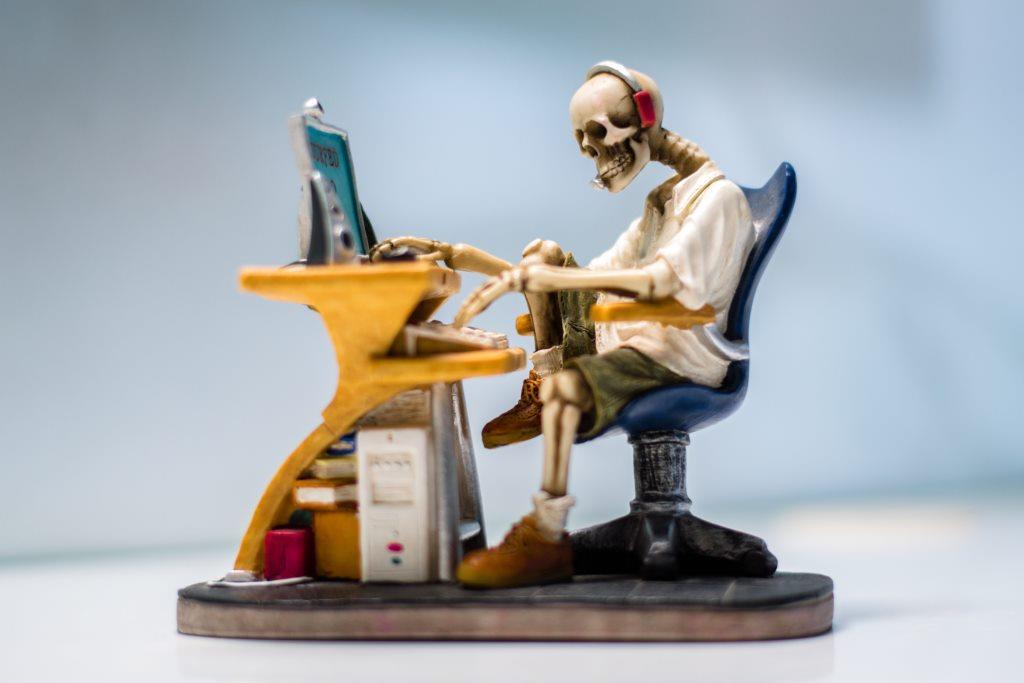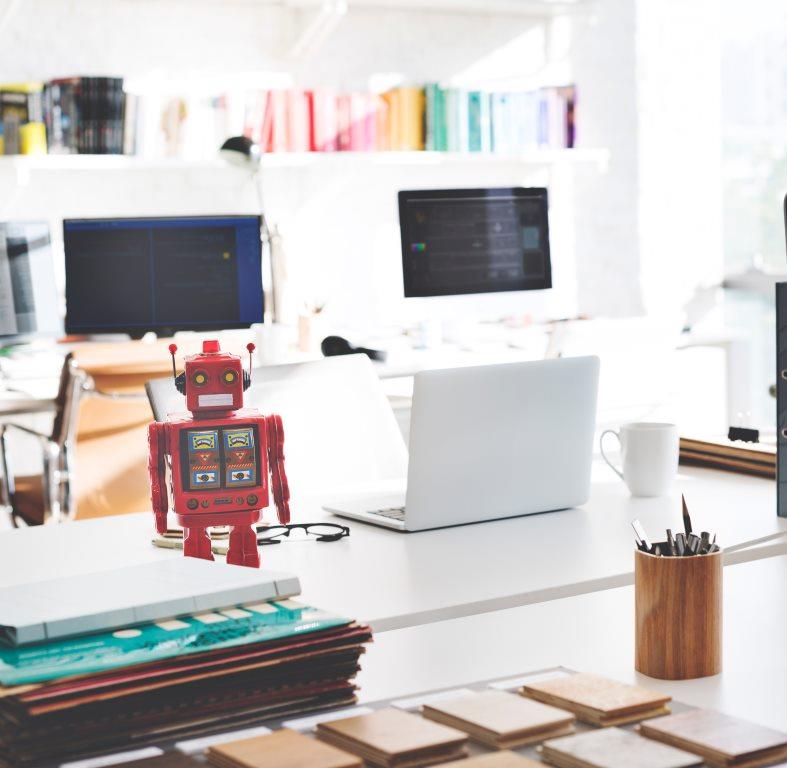2 times more, 10 times faster, around the clock - all for the sake of people
Employees have become friends with Artificial Intelligence and are ready to use it in order to increase productivity, as well as to find a balance between work and personal life. This is the conclusion reached by analysts Pierre Audoin Consultants (PAC), who together with Fujitsu conducted a study Workplace 2025 *. More than 80% of participants believe that the AI technology with which they met will have a positive impact on the work. All those who are interested in what jobs the professionals dream about, please under the cat.

Almost half of all employees surveyed think that their productivity remains at the same level or even decreases, despite the fact that they also work hard (45%) as they did two years ago, or even more hard (47%). Perhaps this is why the majority of respondents believe that AI will help them improve their work efficiency. As mentioned above, more than 80% of research participants who managed to familiarize themselves with this or that AI technology in the form of digital virtual assistants or special personalized and adaptive functionality, believe that it will positively affect the work. And this is not only about the employees of the so-called digital generation, who are well versed in modern technology. This view is also shared by specialists with minimal basic experience with digital solutions.
There are more and more examples of the introduction of Artificial Intelligence, which show certain results. Thus, in the framework of the British project DeepMind Health, a system was created that can process hundreds of thousands of medical records in a few minutes and highlight the necessary information. Using a million images of eyes, researchers are working to create algorithms based on machine learning technologies that help detect the early signs of two eye diseases - wet age-related macular degeneration and diabetic retinopathy. Although the Fujitsu survey was conducted only in European countries, some examples from Russia may well support the data. Large companies, such as Gazprom Neft, Russian Railways, Rostelecom, Yandex, Mail.Ru, MTS,
For example, Cognitive Geologist helps Gazprom Neft employees make a stock forecast, risk assessment, and development strategy planning. The robot significantly reduces the risk of blunders in the early stages of mining, which are almost impossible to correct in the future. The colleague of the “geologist”, the robot-recruiter “Vera”, passes the probationary period, i.e. used in test mode at RZD. Experts evaluate her conversations with applicants, the quality of interaction with them, and also add to the script scripts. A virtual assistant helps to select candidates according to the requirements of a particular vacancy. People connect to work with applicants at the first stage in the event that, for example, the call fails, or it is important to get answers to special questions relating to experience. Vera receives calls from applicants around the clock.
Looking at the successes of robots, employees do not fear at all that they will take work away from people, and even vice versa, we would like to make the usual “tools” more effective with the help of machines. As Artificial Intelligence, machine learning, and automation technologies for robotic processes are becoming more widespread and publicized, people will expect from their employers to introduce such solutions. Companies that will cope with this task will be able to increase productivity and win the war for talented and promising specialists.
But so far, the survey results show that almost half of employees low the current jobs: they do NOT have a positive effect on attracting new employees and even can NOT retain professionals with key skills. Survey participants noted that many applications and services do not provide the necessary support, and employees are surrounded by too much data, which makes it difficult to find the necessary information for work.

Let's say the task is to open an account for a legal entity. Now the banks that have not used the artificial intelligence for this purpose, spend almost eight days. All this time, employees are manually looking for, checking and entering data from a package of documents - the charter, certificate of registration, contracts and licenses. And technologies for analyzing natural language texts cope with the task ten times faster. They are based on the semantic hierarchy, which analyzes and understands the text based on its meaning. The AI quickly determines the types of all documents, extracts data, compares and transfers to information systems, and checks the client against blacklists. Such platforms can be used for corporate audit, for example, for the purpose of distributing documents across systems: contracts - in CRM, invoices - in accounting systems, estimates - in procurement management. Technical support specialists with similar solutions help to quickly find the answer to customer requests. Technology analyzes the meaning of the text, not individual words. Therefore, she understands when questions are asked about the same thing, but they formulate them differently. For example, the Internet "does not work", "does not catch", "everything is broken."
Since employees have to work longer, they need to find the best balance between work and personal life. And judging by the results of the survey, they would like to achieve this through more flexible working methods and an adaptable schedule - more than half of the respondents (53%) believe that this is “very important” for increasing productivity. However, more than a third of survey participants (35%) moderately or lowly assess the ability of their employers to maintain the optimal balance between business and personal life. A stimulating and healthy working environment (49%) and access to the right tools (40%) were mentioned as the main factors of work efficiency.

When Artificial Intelligence is human-centered, it helps blur the line between personal and work time. If you put an employee in the first place and give him the necessary correct technological tools, we will see how you can safely combine business and private life.
More than 300 companies in six countries of the world automate the search for new personnel with the help of our compatriot Vera. It frees employees from the most tedious work - searching for resumes, “clearing” the database from duplicates (and there may be about 30%), “cold” calls, and conducting a primary interview. The recruiter calls 100 people in two days, and Artificial Intelligence in half an hour. Moreover, the robot can make 10,000 calls simultaneously and work 24 hours a day.
However, the survey results stubbornly show that many existing work environments and tools do not allow employees to maximize productivity. Companies need to focus on efficient work practices and take care of cleaning up data and processes so that employees can more easily access information when and when they need it. If a business fulfills these requirements, based on the right, human-centered technology, then its ability to increase productivity will be limitless. In addition, it will help keep key employees in a highly competitive environment.

* The study is based on an online survey of about 600 employees of large and medium-sized businesses in Belgium, France, Germany, Scandinavia, Spain, the United Kingdom and Ireland. The study was conducted by PAC from September to October 2018. A full description of the findings is available for download in the study.

Almost half of all employees surveyed think that their productivity remains at the same level or even decreases, despite the fact that they also work hard (45%) as they did two years ago, or even more hard (47%). Perhaps this is why the majority of respondents believe that AI will help them improve their work efficiency. As mentioned above, more than 80% of research participants who managed to familiarize themselves with this or that AI technology in the form of digital virtual assistants or special personalized and adaptive functionality, believe that it will positively affect the work. And this is not only about the employees of the so-called digital generation, who are well versed in modern technology. This view is also shared by specialists with minimal basic experience with digital solutions.
There are more and more examples of the introduction of Artificial Intelligence, which show certain results. Thus, in the framework of the British project DeepMind Health, a system was created that can process hundreds of thousands of medical records in a few minutes and highlight the necessary information. Using a million images of eyes, researchers are working to create algorithms based on machine learning technologies that help detect the early signs of two eye diseases - wet age-related macular degeneration and diabetic retinopathy. Although the Fujitsu survey was conducted only in European countries, some examples from Russia may well support the data. Large companies, such as Gazprom Neft, Russian Railways, Rostelecom, Yandex, Mail.Ru, MTS,
For example, Cognitive Geologist helps Gazprom Neft employees make a stock forecast, risk assessment, and development strategy planning. The robot significantly reduces the risk of blunders in the early stages of mining, which are almost impossible to correct in the future. The colleague of the “geologist”, the robot-recruiter “Vera”, passes the probationary period, i.e. used in test mode at RZD. Experts evaluate her conversations with applicants, the quality of interaction with them, and also add to the script scripts. A virtual assistant helps to select candidates according to the requirements of a particular vacancy. People connect to work with applicants at the first stage in the event that, for example, the call fails, or it is important to get answers to special questions relating to experience. Vera receives calls from applicants around the clock.
Understand, check, resolve 10 times faster
Looking at the successes of robots, employees do not fear at all that they will take work away from people, and even vice versa, we would like to make the usual “tools” more effective with the help of machines. As Artificial Intelligence, machine learning, and automation technologies for robotic processes are becoming more widespread and publicized, people will expect from their employers to introduce such solutions. Companies that will cope with this task will be able to increase productivity and win the war for talented and promising specialists.
But so far, the survey results show that almost half of employees low the current jobs: they do NOT have a positive effect on attracting new employees and even can NOT retain professionals with key skills. Survey participants noted that many applications and services do not provide the necessary support, and employees are surrounded by too much data, which makes it difficult to find the necessary information for work.

Let's say the task is to open an account for a legal entity. Now the banks that have not used the artificial intelligence for this purpose, spend almost eight days. All this time, employees are manually looking for, checking and entering data from a package of documents - the charter, certificate of registration, contracts and licenses. And technologies for analyzing natural language texts cope with the task ten times faster. They are based on the semantic hierarchy, which analyzes and understands the text based on its meaning. The AI quickly determines the types of all documents, extracts data, compares and transfers to information systems, and checks the client against blacklists. Such platforms can be used for corporate audit, for example, for the purpose of distributing documents across systems: contracts - in CRM, invoices - in accounting systems, estimates - in procurement management. Technical support specialists with similar solutions help to quickly find the answer to customer requests. Technology analyzes the meaning of the text, not individual words. Therefore, she understands when questions are asked about the same thing, but they formulate them differently. For example, the Internet "does not work", "does not catch", "everything is broken."
When artificial intelligence is people oriented
Since employees have to work longer, they need to find the best balance between work and personal life. And judging by the results of the survey, they would like to achieve this through more flexible working methods and an adaptable schedule - more than half of the respondents (53%) believe that this is “very important” for increasing productivity. However, more than a third of survey participants (35%) moderately or lowly assess the ability of their employers to maintain the optimal balance between business and personal life. A stimulating and healthy working environment (49%) and access to the right tools (40%) were mentioned as the main factors of work efficiency.

When Artificial Intelligence is human-centered, it helps blur the line between personal and work time. If you put an employee in the first place and give him the necessary correct technological tools, we will see how you can safely combine business and private life.
More than 300 companies in six countries of the world automate the search for new personnel with the help of our compatriot Vera. It frees employees from the most tedious work - searching for resumes, “clearing” the database from duplicates (and there may be about 30%), “cold” calls, and conducting a primary interview. The recruiter calls 100 people in two days, and Artificial Intelligence in half an hour. Moreover, the robot can make 10,000 calls simultaneously and work 24 hours a day.
However, the survey results stubbornly show that many existing work environments and tools do not allow employees to maximize productivity. Companies need to focus on efficient work practices and take care of cleaning up data and processes so that employees can more easily access information when and when they need it. If a business fulfills these requirements, based on the right, human-centered technology, then its ability to increase productivity will be limitless. In addition, it will help keep key employees in a highly competitive environment.

* The study is based on an online survey of about 600 employees of large and medium-sized businesses in Belgium, France, Germany, Scandinavia, Spain, the United Kingdom and Ireland. The study was conducted by PAC from September to October 2018. A full description of the findings is available for download in the study.
